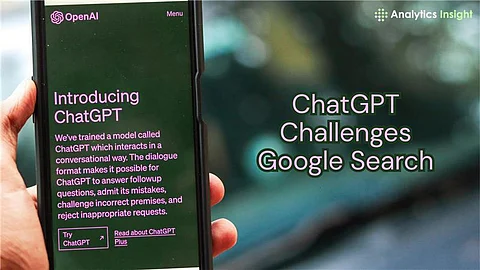

ChatGPT has now begun receiving a colossal 2.5 billion prompts every day. Of this figure, approximately 330 million prompts are generated each day by American users, underscoring AI’s further integration into digital life on both domestic and global levels.
This entails a growth rate of over 150% in just eight months. In December 2025, OpenAI CEO Sam Altman confirmed that ChatGPT was processing over 1 billion queries daily. The shift to 2.5 billion now indicates a steep acceleration in adoption by user bases.
Being indeed impressive, it, however, remains behind the giant. Independent estimation puts Google Search somewhere between 13.7 billion and 16.4 billion searches per day. That said, the ascent of ChatGPT is in sharp contrast with the typical surface growth of traditional search engines.
What has immensely accelerated the evolution of ChatGPT is the presence of GPT-4, which enhances and thus increases the performance, accuracy, and versatility of AI systems. Being integrated into browsers and productivity tools, it is getting positioned as the default AI companion.
With the introduction of ChatGPT Agent by OpenAI, the platform now supports web browsing, scheduling, and executing complex tasks. In the ongoing ChatGPT vs Google Search narrative, OpenAI is also planning to launch a generative AI-powered browser, positioning itself as a direct contender to Google Chrome.
Also Read: ChatGPT can now Think and Act: What's New in the Latest Update?
Making a billion user experiences with the trillionth interaction, underscores the remarkable ChatGPT growth, placing it at the forefront of the ‘AI-First’ digital behavior shift.
No longer only a novelty, it went on to become a primary position for search. Analysts believe a new paradigm is being ushered in, where conversational AI search is set to surpass text-based internet search.
Scaling to billions of daily interactions is both a technical achievement and a strategic inflection point for OpenAI. It not only fuels continuous improvement and attracts more investment, but it also positions ChatGPT as a genuine competitor to Google in the core functionality area.
The rise, however, brings challenges:
Sustainability: AI workloads are computation and energy-intensive. Research suggests that ChatGPT consumes 10-100 times more power per query than Google Search, and therefore poses concerns regarding cost and carbon emissions.
Accuracy: As an assistant, ChatGPT must gain trust in its ability to refrain from ‘hallucination’ errors and ensure user privacy.
Monetization: The scale of ChatGPT demands sustainable monetization through subscriptions, enterprise licenses, or some form of embedded transactions.
Regulatory Oversight: AI systems operating at high volumes are swiftly becoming the focus of attention regarding data usage, misinformation, and content moderation.
The milestone marking the daily prompts of ChatGPT is beyond a mere statistic. It marks the epochal transition from prototype to daily infrastructure. The upcoming OpenAI browser, coupled with enhancements like ChatGPT Agent, may create a fusion of Artificial Intelligence and search.
While Google remains the giant in conventional search, the tempo that ChatGPT maintains makes a strong argument as AI chat could soon rival search engines. We may witness the emergence of a new paradigm for digital interactions, where the following billion queries are not static searches but iterative conversations.
